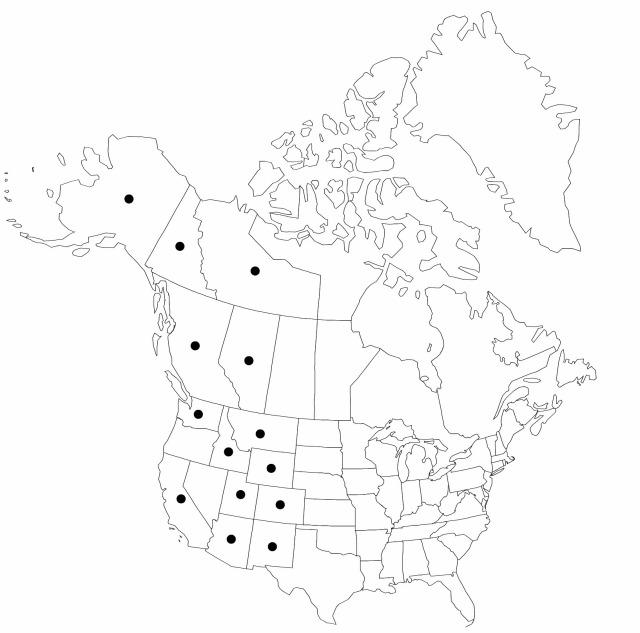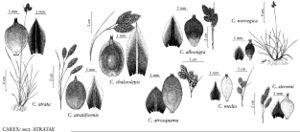Difference between revisions of "Carex albonigra"
in P. A. Rydberg, Fl. Rocky Mts., 137, 1060. 1917.
FNA>Volume Importer |
FNA>Volume Importer |
(No difference)
| |
Revision as of 21:10, 16 December 2019
Plants densely cespitose. Culms 10–30 cm, distally finely scabrous. Leaves 2.5–5 mm wide. Inflorescences: proximal bracts shorter than or exceeding inflorescences; spikes contiguous, overlapping, erect, distinct, short-pendunculate, short-oblong or elongate, 8–20 × 4–7 mm; lateral 1–3 spikes pistillate pedunculate, of similar length; terminal spike gynecandrous. Pistillate scales light to dark brown with hyaline margins, broadly lanceolate or ovate, equaling perigynia, midvein same color as body, inconspicuous, raised, prominent, short-mucronate. Perigynia ascending, chestnut, veinless, ovate, 3–3.5 × 2–2.5 mm, apex abruptly beaked, papillose; beak 0.3–0.4 mm, entire or shallowly bidentate, smooth. Achenes nearly filling body of perigynia. 2n = 52, 54.
Phenology: Fruiting Jun–Aug.
Habitat: Alpine meadows, fellfields
Elevation: 300–3900 m
Distribution

Alta., B.C., N.W.T., Yukon, Alaska, Ariz., Calif., Colo., Idaho, Mont., N.Mex., Utah, Wash., Wyo.
Discussion
Specimens from California determined as Carex albonigra are provisionally assigned here; these need further study because they differ from the typical Rocky Mountain forms.
Selected References
None.
